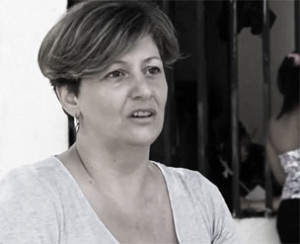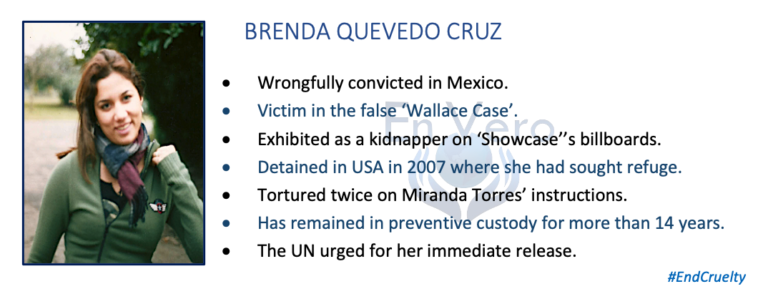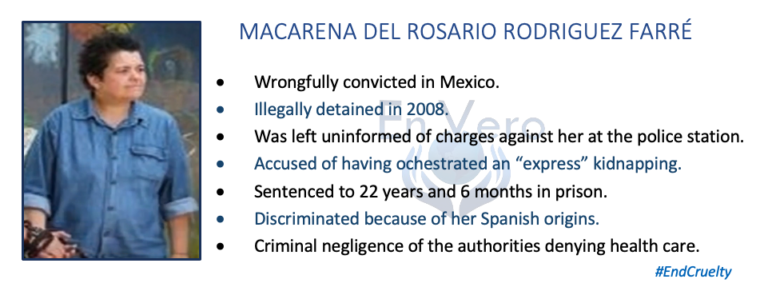 Source: CART Edition
Source: CART Edition
Author: Mabel Gonzalez
May 15, 2015
Translation: JB for CART
Is it possible to believe in the justice of a system permeated by corruption and impunity?
Throughout history various criteria and instruments have been proposed to measure and compare the level of development of any society. The respect for human rights, the level of the quality of life of its citizens and the functioning of the judiciary, i.e. the role of the State in administering justice have been and continue to be key criteria to determine the capacity of a country to offer its people the guaranties and conditions to freely develop their life project.
An impartial and independent judiciary is essential to have the rule of law, in which all public powers are also subject to it. In the same way, the right to due process, i.e. to have guarantees that ensure a fair, prompt, equitable, and transparent outcome within a process, is essential to meet the claims of justice and maintain social order, equally benefiting all the parties, both plaintiffs and defendants.
In Colombia, the judicial branch is made up of the Superior Council of the Judiciary and the set of the highest institutions or organs of the three main jurisdictions (ordinary, constitutional and administrative), popularly known as the high courts. Thus, the Constitutional Court, created in 1991 and charged with safeguarding the Constitution; the Supreme Court, maximum organ of the ordinary courts that through its decisions unifies the jurisprudence and definitively decides disputes; and the Council of State, responsible for settling disputes between individuals and the Administration and within the Administration, work in harmony according to the guidelines laid down in the Constitution.
Quite possibly the name of high courts reflects the high level role that each of them exercises and that makes them perhaps the country’s most important institutions. In fact, until very recently, to become a judge or magistrate of one of the high courts was to occupy one of the most important positions that a Colombian could occupy. Being a judge or magistrate was the dream of any law student committed to justice, transparency and excellence and willing to devote his life to fighting for human rights, even knowing that in a country like Colombia, marked by decades of violence, this can lead to death.
It is nobody’s secret that in areas of the country historically unprotected and neglected by the national Government and the security forces, the task of exterminating anyone who could be recognized as a threat–including not only guerrilla members and contributors, but also anyone who dared to go against their vision and interests–has been assumed for several decades by the paramilitary and self-defense groups that have taken over different parts of the country and managed to infiltrate public institutions, identifying allies willing–voluntarily or by force – to support their project regardless of who they have to step over or what they have to sacrifice.
Together with this phenomenon, Colombia has been victim and witness to the harmful consequences of drug trafficking, which has not only claimed many lives but has allowed the emergence of a new social class and managed to decisively influence the political, social and economic life of the country, sowing an atmosphere of impunity, corruption and fear. This environment has been practically normalized today despite constant allegations by journalists, civil society and international cooperation organizations on, for example, the alliances by politicians with paramilitary groups, drug traffickers or armed groups on the fringes of the law linked to one of these two sides, or both, to achieve electoral triumphs or perks.
However, corruption is not, to any extent, something that only affects the political class. In fact, the culture of easy money and unlawfulness, the weakness of the institutions of the judiciary system and the consistent lack of credibility in them, the lack of security and guarantees by the State, coupled with the rampant conditions of inequality and poverty, are part of the causes that in Colombia the possibility of bribing anyone to achieve no matter what, is seen in a good light and used daily by a large majority of the population. In fact, one of the “sayings” that parents of all social classes repeat to their children is that it is better to be a smooth operator than a dumb one. i.e., it is better to cheat than to comply with the imposed rules, because this is how you really get things and how you manage to move up quickly.
Every day scandals are published highlighting that corrupt practices are part of the culture in both the public and private sectors, affecting significantly the development of Colombia, its institutions and its citizens.
Scandal of corruption at the Constitutional Court
Just a few weeks ago a scandal, considered to be one of the largest that the country has had to face in recent years, was unleashed: the Judge of the Constitutional Court Mauricio González, denounced before the Congress of the Republic the judge and president of that court Jorge Pretelt, for allegedly requesting money from a private company to solve an action of protection in their favour. At the same time, Judge Pretelt, in retaliation to what he considers as an infamous slander, proceeded to accuse days later several of his colleagues for having engaged in similar practices.
Therefore, were allegations from both sides be true, it would confirm that the High Constitutional Court, which is intended to safeguard the Constitution, the document framework of the entire legal system, is nothing more than “a niche of rampant corruption,” as pointed out by the newspaper El Tiempo on March 2[1].
The scandal does not stop there. Quickly, the crisis spilled over to the Supreme Court of Justice, where days after it happened, two of the judges of this court, María del Rosario González and Jesús Vall of Rutten, presented their resignation, arguing, among other things, the inability to continue exercising their functions and living with the presumption of guilt with which currently all judges are being assessed.
After this, one of the questions that stands out is whether in Colombia it is possible to trust the justice system, in particular the judicial institutions. Were the complaint to be true, i.e. were it to be true that the officials in charge of the administration of Justice at its highest levels have charged for ruling in favor of one side or the other, can it be really trusted that such practices have not permeated the other levels of justice? How many other judgments have been or are being bought at the moment? How many people are incarcerated, with no evidence supporting their guilt or as a consequence of violations to due process, false witnesses, or as in the case of the Constitutional Court, getting bribes for judgments?
The case of Judith Brassard
Canadian-born Judith Brassard may be one of them. Judith, a resident of Santa Marta, Colombia since 1994 when she married Felipe Rojas with whom she had two children, Mariana and Felipe David, was captured on August 28, 2008, by allegedly masterminding the assassination of her husband in December 2006. Once the material killers were identified, who claimed to have been hired by Jhon Osorio, the husband of Judith’s maid in Santa Marta, Katerine Pitre, the latter two were arrested and sentenced to long terms in prison.
On August 27, 2008, Jhon William Osorio retracted his initial testimony where he claimed his innocence, pleading guilty–as an intermediary–of the murder allegedly ordered by Judith Brassard, who according to him, would have been the intellectual author of the crime. Confronted with Jhon William’s version, Katerine Pitre first denied having any knowledge that her employer Judith had hired her husband to kill Felipe Rojas, but subsequently entered a guilty plea and on October 1, 2008, declared to have been aware of communication exchanges between the two to apparently plan and carry out the murder.
Judith was then sentenced, in February 2009, to 28 years in prison and the payment of two million dollars in damages. This sentence was confirmed in 2010 by the Court of Appeals and in 2013 by the Supreme Court of Justice, thus exhausting all instances of the ordinary courts in Colombia.
The confirmation of the conviction was held despite the fact that on December 19, 2008, before sentencing was rendered against her, Jhon Osorio retracted his testimony and the accusation he made against Judith as the intellectual author of the crime. And despite that no material evidence was ever found about the planning of the assassination or payment by Judith to the killers, among other important details.
Ignoring the retraction and the lack of compelling evidence on the involvement of Judith in the crime, in a systematic way the different levels of justice decided not to discard the false testimonies or explore other hypotheses, but, on the contrary, to keep them as a basis, almost unique, of the guilt of Judith. Since the beginning of the investigation, it was possible to observe a clear trend by the judicial authorities and the local media, which quickly and carelessly peddle her image to the country as “the black widow,” to present a Judith interested at all costs in staying with her children and with Felipe Rojas’ money, as motive enough, according to them, to justify a murder. This image was reinforced with considerable success by some members and friends of the family of Felipe Rojas, who found in Judith perhaps the perfect scapegoat to close an investigation, which according to several of the statements presented had shades of hiding some dark secrets.
In fact, one of the striking elements in reading the case file is the determined position of some members of the Rojas Gnecco family against Judith from the outset, who did not stop from openly expressing their wish that she were convicted perhaps in the anxious search of a guilty party, but who would have even put pressure on the authorities, putting in doubt the independence and impartiality of the Colombian judicial system. The same director of the Santa Marta prison at the time that Judith was sentenced later said that she had been pressured by the Rojas family to have Judith transferred to a maxiumum security jail far from the city which could prevent her from having contact with her children. It should be noted that, possibly due to her refusal, she was fired weeks after the episode happened.
In addition, none of the other hypotheses that arose in the course of the investigations was explored by the authorities in a judicious manner. Among the hypotheses pointed out, for example, was that the death of Felipe would have been due to an extramarital affair that he had with the wife of a paramilitary commander; or that it would have been his brother who had ordered his murder; or that it was because Felipe’s dental office laundered drug-trafficking resources and owed money to paramilitary commanders. Due to the fact that in a country like Colombia any of these hypotheses may be true, it causes astonishment and concern that the authorities would have decided to dismiss them without due care or thoroughness.
The Supreme Court’s decision to uphold Judith Brassard’s sentence
During the procedure presented before the Supreme Court of Justice to resolve the appeal lodged by Judith’s defence, the same Public Prosecutor’s Office through the Office of the Attorney-General, not only pointed out that the main testimonies of the process were false, questioning the credibility given by the Court to the statements, but it also emphatically showed evidence that there was a complete lack of physical evidence which would justify the sentence imposed on Judith Brassard in 2009. Therefore, it requested the Court the application of the reasonable doubt, the annulment of the decision and Judith’s release.
The Supreme Court, however, decided to ignore the recommendation of the Public Prosecutor’s Office and take the easy road –or perhaps the more affordable one–, deciding not to overturn the judgment, thus confirming the decision to deprive Judith of spending her life in freedom beside her children, main victims of a society where life and the right to justice and truth have a price.
Suspicious coincidences
A series of coincidences leaves up in the air a legitimate question regarding the impartiality of the justice system in Colombia, and in particular in the case of Judith Brassard.
Judge Maria del Rosario González, who resigned on March 26 from the Supreme Court of Justice as a result of the serious crisis facing the judicial branch[2] and who participated in the appeal filed by Judith Brassard’s defence and ruled against her on June 26, 2013, would have asked the Prosecutor’s Office on May 30 of the same year, i.e., a month before ruling against the appeal, to thoroughly investigate the alleged payment of bribes to officials of the Supreme Court, as reported by the magazine Semana on April 7.
According to the same source, in May 2013, the judge felt obliged to request the Prosecutor’s Office to carry out the appropriate investigations to verify if the complaint against her over alleged bribes paid for a judgment in particular was true or not. This complaint, which involved not only Judge Gonzalez but also her colleagues Leonidas Bustos and Javier Zapata (the latter one was also part of the team of judges who ruled on Judith’s appeal), was never investigated, leaving the question up in the air as to why the investigation never moved forward and, above all, whether certain allegations about the corrupt practices of some judges in Colombia at the time of declaring the guilt or innocence of anyone are really true.
[1]http://www.eltiempo.com/politica/justicia/corrupcion-en-la-corte-constitucional-analisis-de-las-consecuencias/15321875
[2] http://www.eltiempo.com/politica/justicia/renuncian-dos-magistrados-de-la-corte/15467645




